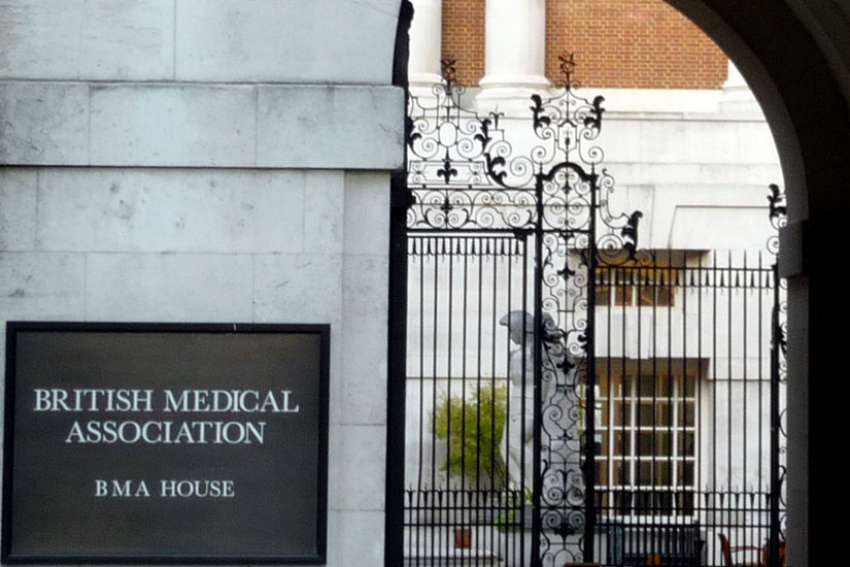The British Medical Association, the doctors' union, voted for decriminalization in a series of motions by a consistent majority of two-thirds in favour.
The outcome of the vote at the annual representative meeting in Bournemouth, England, means that a political campaign to allow abortion up to birth for any reason will now be seen to have the approval of Britain's doctors.
After the June 27 vote, the Bishops' Conference of England and Wales issued a statement by email to Catholic News Service and expressed concern about some of the possible implications of decriminalization.
"We all depend upon doctors to protect the vulnerable," it said. "We are concerned that decriminalization of abortion may put more vulnerable women at risk.
"We are also concerned that this step could open the door to sex-selective abortions," the statement added.
Abortion is technically illegal in Britain unless requests meet criteria defined under the 1967 Abortion Act.
There is an upper time limit for abortions of 24 weeks of gestation, for instance, except in cases of severe fetal abnormality. Two doctors must give signed consent to an abortion after considering if the continuation of a pregnancy might injure the mother's mental or physical health.
The provisions of the Act have led to scarcely any prosecutions, but they allow nearly 200,000 abortions each year in Britain.
They do not prohibit sex-selective abortions, but the government has issued guidance to strongly discourage the practice.
Dr. Wendy Savage, a member of the BMA ethics committee who formally proposed that the doctors' union supported decriminalization, told the meeting the 1967 Act effectively permitted abortion "on request."
Savage, a gynecologist who said she has personally performed 10,000 abortions, added that "the way women are treated is really important and it has changed -- in 1967 it was a paternalist law that was passed."
Speaking against the motion, Dr. Amy Watson asked delegates: "How is aborting a healthy, viable baby not criminal?"
She said: "I have no doubt that this motion is well-intended, but it is deeply flawed in all its parts.
"The BMA -- the voice of doctors -- influences parliamentary debate," she said. "What message do we want to give MPs? That we care so little about women and their unborn babies that we wish to pass such an ill-thought-out policy?"
Ahead of the vote, more than 1,500 doctors and medical students wrote to the BMA to voice their opposition to the motion. They signed a letter to say the proposals were "extreme" and to warn that it put the reputation of their union at risk.
"If these measures were to be implemented, it would mean the introduction of abortion for any reason, to at least 28 weeks and possibly up to birth," opponents said.
The noted the results of a ComRes poll carried out in May, which found that only 1 percent of women said they wanted to see the time limit for abortion extended above 24 weeks, while 70 percent of women wanted to see the time limit reduced to 20 weeks or less.
The BMA vote was held amid a wider campaign to decriminalize abortion in Britain. Earlier this year, a bill was introduced in Parliament to repeal criminal sanctions from existing legislation. The bill ran out of time when a snap general election was called by Prime Minister Theresa May.
Pro-life groups believe it is extremely likely that another decriminalization bill is inevitable.


